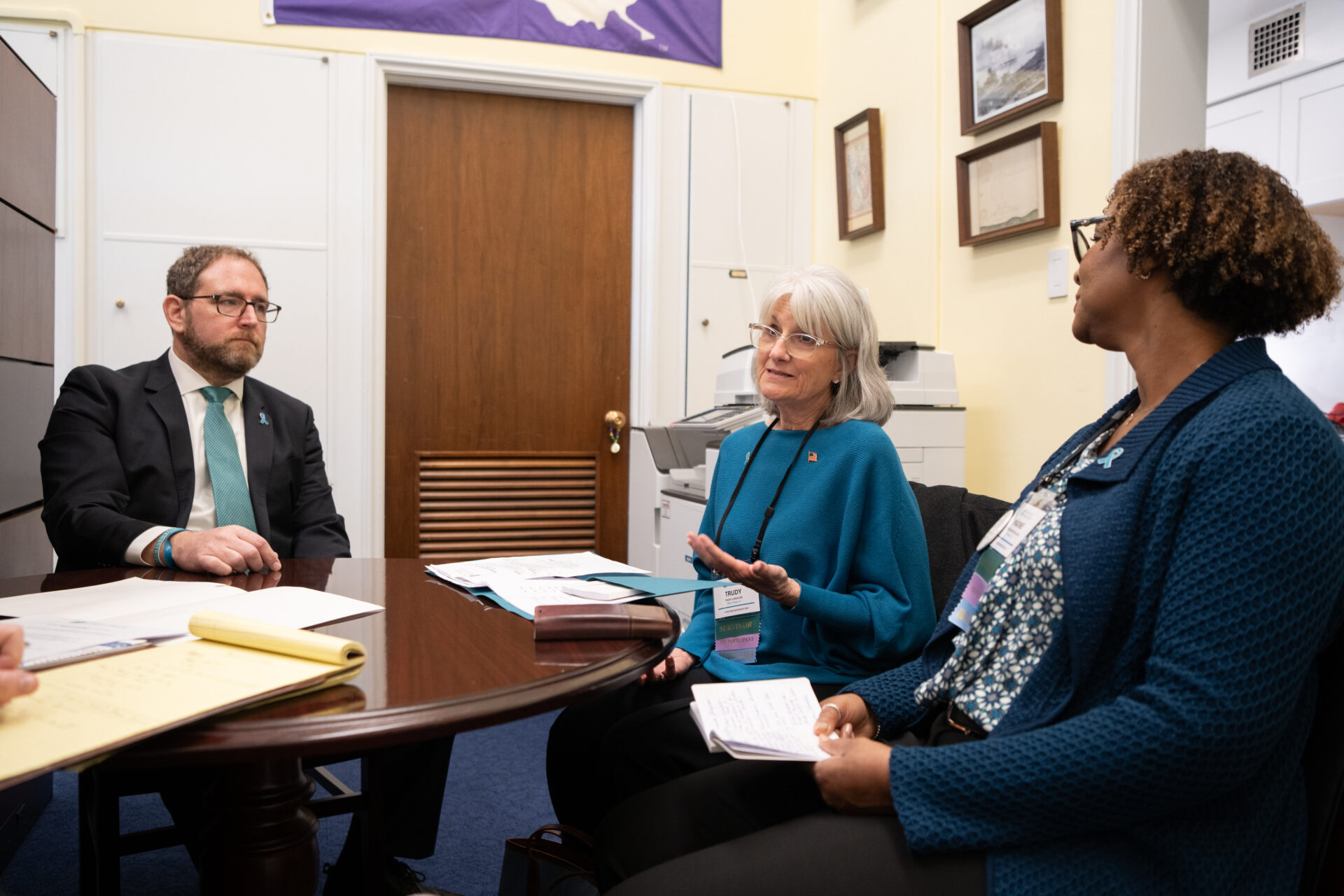OCRA has joined 71 other organizations in signing on to a letter calling for the U.S. Senate to incorporate critical reforms into the Prescription Drug User Fee Act (PDUFA) reauthorization which, if implemented, would improve diversity in clinical trials.
These reforms, which are included as provisions in the U.S. House version, would make a number of changes to the current clinical trial system. They include requiring that trial sponsors develop and publish plans to enhance diversity in their trials at the earliest stages of the trial design process, giving FDA more authority to review and approve those plans, and promoting the decentralization of clinical trials to combat geographic inequality.
OCRA is proud to be a co-signer of the following letter, and remains committed to health equity.
June 8, 2022
The Honorable Patty Murray
Chairwoman
Committee on Health, Education, Labor & Pensions
United States Senate
Washington, D.C. 20510
The Honorable Richard Burr
Ranking Member
Committee on Health, Education, Labor & Pensions
United States Senate Washington, D.C. 20510
Dear Chairwoman Murray, and Ranking Member Burr;
The 72 undersigned organizations, representing patients with chronic and acute health conditions write to urge you to take up critical provisions included in Title V of the House Prescription Drug User Fee Act (PDUFA) reauthorization which, if implemented, would improve diversity in clinical trials.
Today, the majority of clinical trials fail overwhelmingly to achieve diverse enrollment – despite the fact that many serious and chronic diseases disproportionately impact underrepresented racial and ethnic minority groups. This lack of diversity in trial enrollment inhibits a full understanding of how safe and effective new drugs might be across their intended populations. It also exacerbates disparities in access to treatment when enrolling in a clinical trial may be a patient’s most effective treatment option.
Improving clinical trial diversity is an imperative both for patient access and comprehensive scientific research. Despite racial and ethnic minority groups comprising nearly 40% of the US population, about 75% of participants in trials for drugs approved by the FDA in 2020 were white.1 When compared against the disproportionate burden of acute and chronic disease across racial and ethnic minority groups, this stark contrast highlights a growing problem contributing to both health and socioeconomic disparities.2
Clinical trials should be available to all patients who qualify, including those who experience barriers to care and/or those who are from underrepresented communities. Reducing barriers to clinical trial participation is also good science. As America becomes more racially and ethnically diverse, a clinical trial system that fails to enroll patients from growing demographics will not support the pace of innovation that will help us meet our potential.
The House has advanced a legislative package that makes real and meaningful reforms that will help ensure patients in every part of the country have access to the clinical trial care they need. We also appreciate that the HELP Committee has already demonstrated a commitment to these principles by including in the PREVENT Pandemics Act provisions related to digital tools and decentralized trials that could improve trial access. We now ask the Senate to take up these critical provisions as you advance the user fee package:
Premarket Reporting of Diversity Action Plans
We are particularly pleased that the House Energy & Commerce Committee included provisions related to promoting clinical trial diversity by increasing sponsor accountability. While the FDA encourages and supports sponsors developing diversity plans with enrollment targets, trial sponsors are not currently required to develop or submit these plans during the FDA’s trial design review processes. Section 501 of the House legislative package would require clinical trial sponsors to build in specific, measurable enrollment targets as part of their trial design, prior to Phase II or III trials, to ensure that enrollment includes participants reflective of the diverse populations impacted by the specific disease or condition the therapy is intended to address. Incorporating diversity planning into the trial design process at its earliest stages, as the House bill has done, would ensure that underrepresented groups aren’t left behind and examine all aspects of trial design and conduct to diminish barriers.
Evaluation of the Need for Additional Post-Market Authorities
Our organizations also support provisions in the legislation that would hold FDA and sponsors accountable for drafting, implementing and evaluating diversity action plans with integrity.
To achieve meaningful change, sponsors will need to develop action plans that account for trial location, investigator diversity, target populations, and other factors that will aid in achieving racial and ethnic diversity goals. Section 502 would, after two years, require FDA to evaluate whether additional regulations or authorities may be needed should trial sponsors fail to meet enrollment and diversity targets.
Decentralized Clinical Trials & COVID-19 Trial Flexibilities
In many cases, underrepresented groups are often less able to travel long distances to participate in a clinical trial, either from rural areas or even within urban areas. To promote trial access for these patients, trial designs must consider delivering certain clinical trial services outside of the centralized academic medical center setting. Trial flexibilities extended by the FDA during the COVID-19 public health emergency facilitated the provision of certain trial services at community provider facilities or in a patient’s home, including the ability to utilize digital health technologies such as telemedicine, and have interim toxicity evaluation visits, as long as precautions were in place to ensure reliable data. With two years of experience under these flexibilities, it is clear that some standardized services such as phlebotomy, traditional diagnostic imaging tests, and vitals checks can be provided safely and accurately by community providers in many cases. Given the success of these flexibilities in removing barriers to trial participation for patients in underrepresented groups, we were pleased to see that Section 506 of the House bill would require FDA to issue guidance that addresses considerations for decentralized clinical trials including engagement, enrollment and retention of diverse populations.
Public Workshops to Enhance Clinical Trial Diversity
While this legislation makes significant progress towards ensuring clinical trial diversity and inclusion elements are included in the foundation of trial design, we recognize that there are additional steps the community of stakeholders can take to advance trial diversity. As such, our organizations support this legislation’s requirement to convene sponsors, manufacturers, patients, providers, and other stakeholders in additional public discussions about how to advance diversity in clinical trials.
Annual Progress Reporting
As we have previously discussed, continued evaluation and monitoring of the implementation of these provisions will be critical to driving trial diversity. Annual reports documenting progress, stumbling blocks, and other milestones will help regulators and trial sponsors evaluate the impact and efficacy of these provisions. Section 504 would require FDA to report to Congress and the public on an annual basis summarizing information related to diversity action plans received since implementation.
In addition to the provisions included in the House package, our organizations look forward to working with you to address other barriers to increasing clinical trial participation and diversity including improving outreach to underserved patients and providers and minimizing financial barriers for trial enrollees and their families.
Improve Outreach to Underserved Patients & Providers
Investing in community-based providers is more likely to reach patients historically underrepresented in clinical trials. Community health centers are key to breaking down the barriers between the academic medical center and the healthcare teams patients already know and trust. However, many of these community providers are already stretched thin and lack the capacity to engage their patients in clinical trial enrollment. Federal resources should be directed towards community health center grant programs that support hiring and training culturally competent on-site personnel to conduct and recruit for trials, as well as implementing the IT systems necessary to seamlessly educate and enroll patients.
Minimize Financial Barriers
The cost associated with getting to a clinical trial location and making arrangements for family members can make enrolling in a clinical trial impossible. However, current federal fraud and abuse laws discourage sponsors from paying directly for digital technologies, transportation, lodging, and meals to trial participants and their families without the threat of legal action. This disincentive should be removed, and federal rules should clarify that sponsors can provide this assistance to trial enrollees without the threat of liability.
Conclusion
As America becomes more racially and ethnically diverse, a clinical trial system that fails to enroll patients from growing demographics will not support the pace of innovation that will help us meet the needs of patients with chronic and acute health needs. We urge you to take real and meaningful steps towards this future by incorporating the critically important policies included in Title V of the House PDUFA reauthorization bill.


